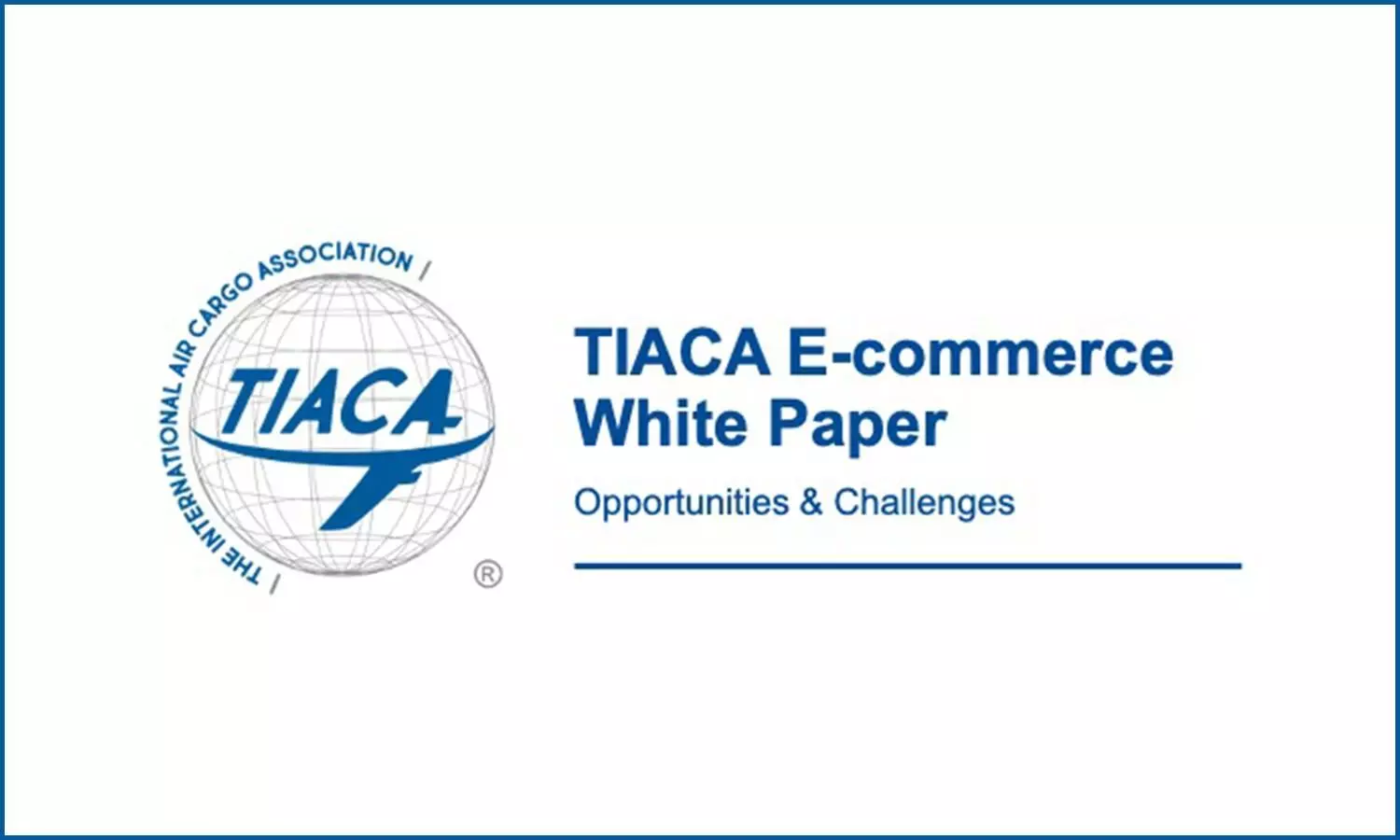
TIACA publishes report on e-commerce trends in air cargo
The white paper examines key e-commerce air cargo challenges and opportunities, including safety, customs, data, sustainability, and innovation.

The International Air Cargo Association (TIACA) has published its inaugural white paper focused exclusively on e-commerce. Titled E-Commerce: Opportunities & Challenges, it provides a comprehensive global outlook on one of the fastest-growing and most transformative trends shaping the air cargo industry, according to an official release from TIACA.
By the close of 2024, e-commerce accounted for approximately 20% of global air cargo volumes, with forecasts predicting these volumes could double within the next decade. This rapid growth, accelerated by COVID-driven shifts in consumer behavior, has reshaped supply chains, created new business models, and revealed gaps in regulation, standardisation, and infrastructure.
Created by TIACA’s multi-sector E-Commerce Task Force, including airlines, airports, ground handlers, technology providers, freight forwarders, and industry analysts, the white paper explores the sector’s key challenges and opportunities, covering areas such as safety, customs management, standardised data practices, sustainability, and innovation.
“E-commerce is not just a new cargo product – it’s a paradigm shift in how the air logistics sector operates. This white paper provides actionable policy recommendations, industry best practices, and a collaborative roadmap to ensure that we as a global community are ready for the next phase of growth,” says Steven Polmans, Chair, TIACA.
The 16-chapter report delves into key areas shaping the e-commerce air cargo sector. It covers market outlooks, including current trends, future growth projections, and shifts in trade lanes. Safety and security aspects are addressed, focusing on lithium battery risks, cyber threats, and regulatory harmonisation. The report also examines customs and border management, aiming to enable efficient clearance while combating fraud and misdeclaration. Process simplification and data harmonisation are highlighted to create interoperable systems that enhance transparency and efficiency. Challenges faced by airlines, ground handlers, and freight forwarders are explored, particularly the need to adapt operations for smaller, higher-frequency shipments. The report discusses final-mile and reverse logistics, emphasising the integration of new technologies and sustainable practices. Finally, it highlights innovation and sustainability, including the use of AI, drones, and green technologies to achieve environmental goals.
“Our industry is at a crossroads. By embracing digitalisation, innovation, and cross-sector collaboration, we can transform e-commerce air logistics into a safer, greener, and more efficient ecosystem,” adds Nikolai Schaffner, Swissport co-Chair of TIACA’s E-Commerce Task Force.
“This white paper is a vital step in helping our industry navigate the rapid rise of e-commerce. My thanks go to our E-Commerce Task Force for their expertise and hard work, and to our Board for prioritising this initiative. Together, we are charting a path toward safer, smarter, and more sustainable e-commerce air logistics that takes into account evolving regulations and consumer behaviour,” says Glyn Hughes, Director General, TIACA.

